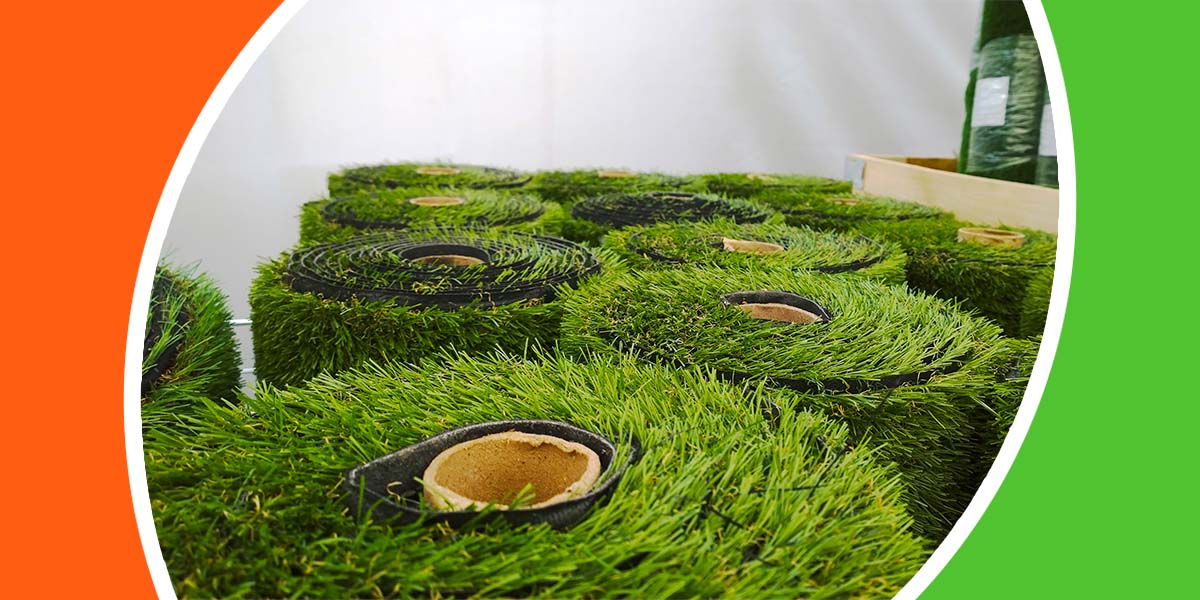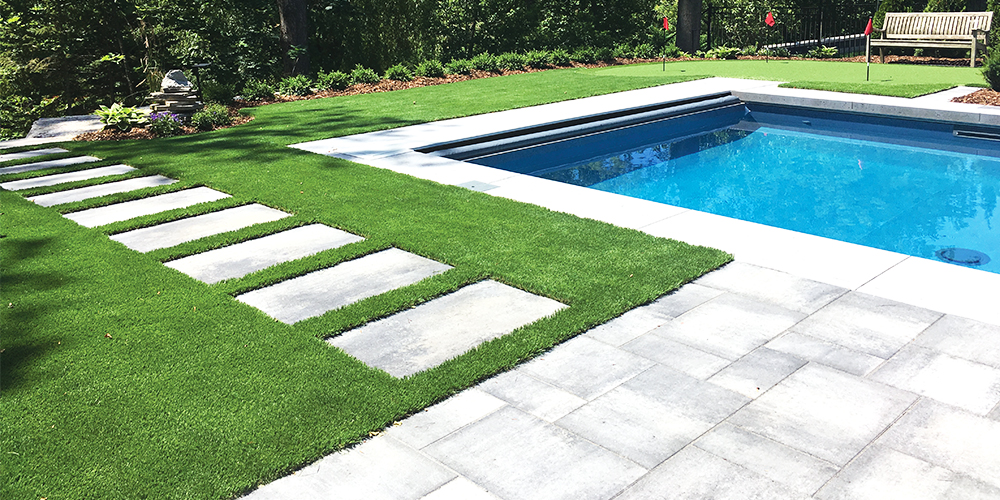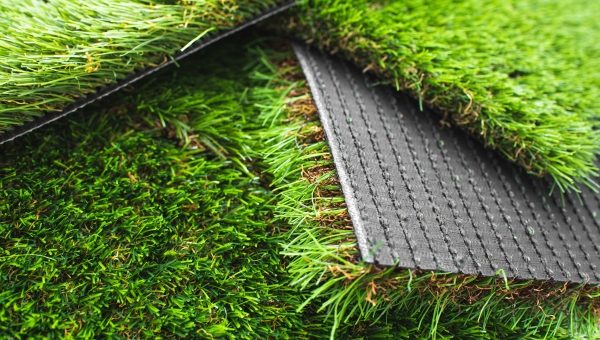High-Quality Arizona Turf Solutions for a Attractive and Lush Landscape
High-Quality Arizona Turf Solutions for a Attractive and Lush Landscape
Blog Article
Explore the Environmental Benefits of Opting for Artificial Turf Solutions
The adoption of fabricated turf solutions provides a compelling chance to resolve pushing environmental challenges. By considerably minimizing water use and decreasing the application of hazardous chemicals, these options not just advertise lasting landscape design yet additionally protect local environments.
Water Preservation Advantages
One of the most significant benefits of man-made turf is its capacity to preserve water. In comparison, fabricated lawn does not need watering, substantially minimizing the general demand for water sources.
By removing the requirement for regular watering, man-made turf adds to sustainable landscape methods and aids minimize the ecological impact of extreme water consumption. Additionally, the conservation of water reaches the reduction of runoff, which can bring about soil erosion and river contamination.
In addition, the installation of fabricated turf enables home owners and towns to designate water sources more efficiently, concentrating on crucial uses such as drinking water and agriculture. The shift in the direction of synthetic grass not just advertises accountable water use yet additionally aligns with broader environmental goals aimed at protecting all-natural sources.
As areas significantly focus on sustainability, the water preservation advantages of artificial grass provide an engaging situation for its fostering in business and property landscape design projects.
Reduced Chemical Usage
The change to man-made lawn substantially decreases the reliance on chemical treatments typically utilized in natural grass maintenance. Typical lawn monitoring typically entails the application of herbicides, chemicals, and plant foods to advertise growth and control pests. These chemicals can pose threats to human health and wellness, neighborhood wild animals, and the setting, adding to soil and water contamination.
In contrast, synthetic lawn gets rid of the need for these harmful substances. As soon as set up, it calls for very little maintenance, primarily consisting of regular cleansing and occasional infill replenishment. This reduction in chemical use not only benefits the instant environment yet also adds to more comprehensive environmental stability. By decreasing the release of artificial compounds right into the community, synthetic grass advertises much healthier soil and water supply.
Additionally, the lack of chemical runoff connected with synthetic grass installations helps secure neighborhood waterways from air pollution, sustaining aquatic life and preserving biodiversity. Phoenix turf companies. As areas significantly focus on lasting practices, choosing for fabricated turf provides a sensible solution that aligns with environmental preservation objectives. Via this change, homeowner can enjoy lush green areas without compromising eco-friendly wellness, leading the way for a more lasting future
Reduced Carbon Impact

In addition, the setup of artificial turf can lead to considerable water preservation. All-natural grass require considerable amounts of water for irrigation, which not only adds to the carbon footprint connected with water extraction and therapy however additionally pressures neighborhood water sources. On the other hand, synthetic grass needs minimal upkeep, requiring no watering, thereby considerably decreasing water usage and its associated energy costs.
Additionally, the longevity of synthetic grass adds to its lower carbon this influence. With a life-span of approximately 15 years or more, the need for frequent substitutes is lessened, causing much less waste and lower energy consumption in manufacturing and dealing with conventional yard alternatives. Overall, synthetic like it grass provides a lasting option for eco mindful landscaping.
Habitat Preservation
Habitat conservation is an important consideration in the debate over landscaping selections, particularly when contrasting synthetic grass to all-natural lawn. Natural lawn lawns often require considerable maintenance, including making use of herbicides, pesticides, and plant foods, which can adversely influence regional ecosystems. These chemicals can seep into the soil and rivers, harming indigenous flora and animals and interfering with regional environments.
On the other hand, synthetic grass provides an opportunity to lower the ecological impact of landscape design. By opting for synthetic yard, property owners can decrease the disruption of all-natural environments associated with standard grass care methods. Synthetic lawn gets rid of the requirement for unsafe chemicals, thereby securing neighboring wildlife and maintaining the stability of bordering ecosystems. Additionally, the installment of artificial turf can lead to the conversion of former yard locations right into more biodiverse landscapes, such as pollinator yards or native plant areas, which can support regional wildlife.
Inevitably, the change to synthetic grass not just saves water and decreases maintenance initiatives but additionally promotes a more harmonious relationship in between human tasks and the natural surroundings, advertising environment preservation in the procedure.
Long-Term Sustainability
Long-lasting sustainability is an essential consider reviewing the benefits of synthetic grass over typical turf lawns. One of the most considerable advantages of artificial turf is its toughness; it can last as much as 15-20 years with minimal maintenance, whereas natural lawn calls for regular reseeding and replacement. This durability decreases the need for continuous resources, such as water, fertilizers, and pesticides, which are important for preserving a healthy and balanced turf yard.
In addition, artificial lawn adds to a reduction in carbon emissions related to lawn care tools. Typical grass frequently call for gas-powered lawn mowers, this page trimmers, and blowers, all of which contribute to air pollution. Arizona artificial turf. In contrast, artificial lawn removes the requirement for such devices, advertising a cleaner setting
Moreover, the production of synthetic grass progressively utilizes recycled materials, boosting its sustainability account. As makers embrace environmentally friendly techniques, the ecological footprint of synthetic grass continues to diminish.

Verdict
The adoption of synthetic grass options presents considerable ecological benefits, including considerable water conservation, minimized reliance on dangerous chemicals, and a lower carbon impact. In addition, synthetic grass aids in protecting all-natural environments by lessening land disturbance and advertising lasting sustainability via using long lasting materials. Collectively, these aspects underscore the capacity of synthetic grass to contribute favorably to environmental health and offer a viable choice to conventional landscape design methods in a significantly resource-conscious world.
In contrast, synthetic turf does not require watering, significantly lowering the overall demand for water sources. By reducing the launch of artificial compounds into the community, man-made grass advertises healthier dirt and water systems.
Furthermore, the installment of artificial grass can result in considerable water conservation. In comparison, artificial lawn requires marginal upkeep, calling for no watering, therefore dramatically decreasing water use and its linked power costs.

Report this page